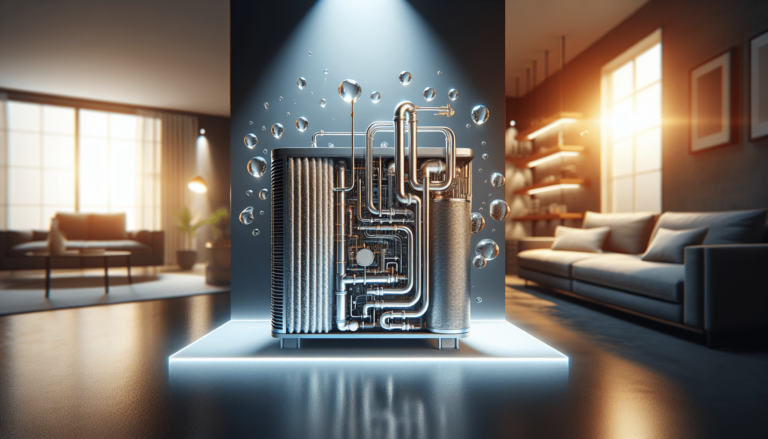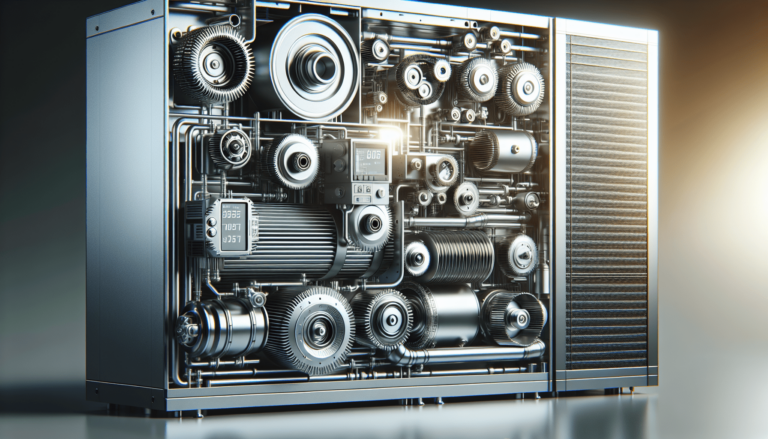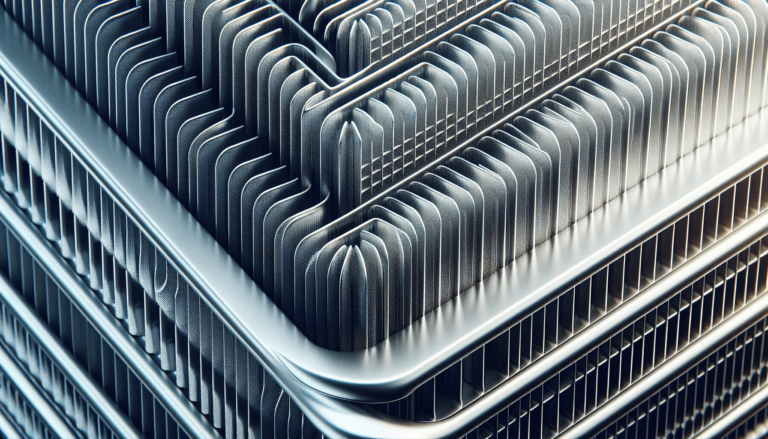

HVAC Services
Get Professional Repairs From The Area's Trusted HVAC Technicians. Ask About Our Services! We Offer Professional Heating & Cooling System Repairs And Guarantee Long-Lasting Results.
Got Question? Call us: (850) 678-2665Financing
The Importance of Regular HVAC Maintenance to Avoid Potential Dangers
Don't risk potential dangers in your home. Learn why regular HVAC maintenance is essential for safety and how to prioritize it with trusted professionals.
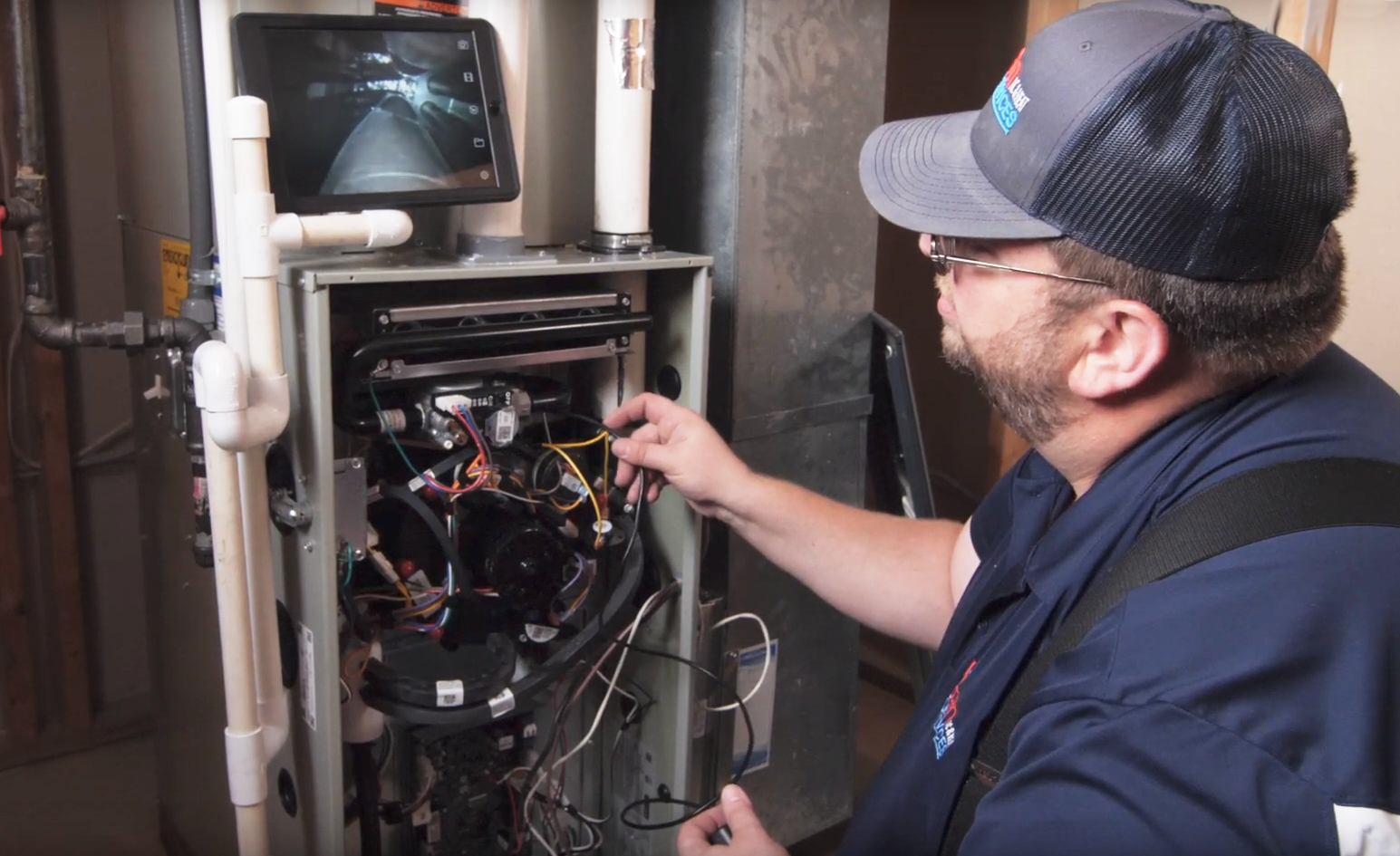
In order to keep your home safe and comfortable, regular HVAC maintenance is essential. By neglecting this important task, you could be putting yourself and your family at risk of potential dangers. Issues such as poor air quality, electrical hazards, and even carbon monoxide leaks can arise from a malfunctioning HVAC system. To ensure the safety and well-being of your household, it is crucial to schedule regular maintenance with a trusted HVAC service provider like Tempacure Heating and Air Conditioning. With their expertise and dedication to excellence, they are the leaders in all things HVAC and can help keep your system functioning properly and avoid any potential dangers. Don’t wait until it’s too late, prioritize regular HVAC maintenance for the safety of your home.
Benefits of Regular HVAC Maintenance
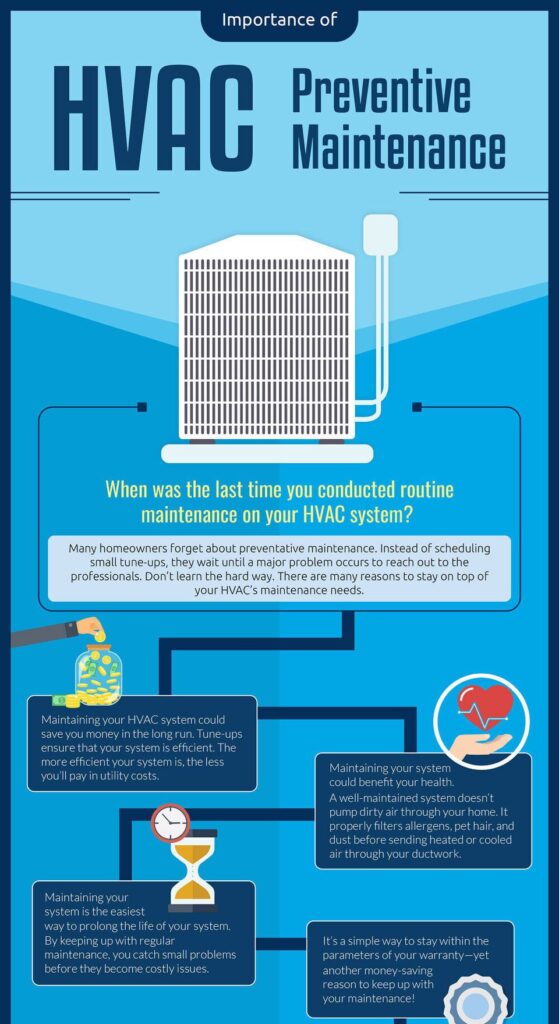
This image is property of d14tal8bchn59o.cloudfront.net.
Enhanced Efficiency
regular HVAC maintenance can greatly enhance the efficiency of your system. When your HVAC system is running smoothly and efficiently, it will consume less energy to operate, resulting in lower energy bills for you. By scheduling regular maintenance, you can ensure that your system is running at its peak performance, optimizing its energy efficiency and saving you money in the long run.
Extended Lifespan
Investing in regular maintenance for your HVAC system can significantly extend its lifespan. Just like any other mechanical system, regular wear and tear can take a toll on your HVAC system over time. However, with proper maintenance, you can prevent small issues from turning into major problems that can lead to a complete system breakdown. By taking care of your system through regular maintenance, you can ensure that it lasts longer and operates effectively for many years to come.
Improved Air Quality
Regular HVAC maintenance plays a vital role in improving the air quality in your home or workplace. Your HVAC system not only helps regulate the temperature but also filters the air circulating throughout the space. Over time, dust, dirt, allergens, and other contaminants can build up in the system, compromising the air quality and potentially leading to respiratory issues or allergies. By scheduling regular maintenance, you can ensure that the air filters and other components of your HVAC system are clean and functioning properly, providing you with cleaner and healthier air to breathe.
Energy Savings
One of the key benefits of regular HVAC maintenance is the potential for significant energy savings. When your HVAC system is not properly maintained, it has to work harder to heat or cool your space, resulting in increased energy consumption. This not only drives up your energy bills but also puts unnecessary stress on the system. By having your HVAC system regularly inspected, cleaned, and calibrated by a professional, you can ensure that it operates efficiently, reducing energy waste and ultimately saving you money.
Common Dangers Associated with Malfunctioning HVAC Systems
Carbon Monoxide Poisoning
One of the most serious dangers associated with a malfunctioning HVAC system is the risk of carbon monoxide poisoning. Carbon monoxide (CO) is a colorless and odorless gas that can be produced by fuel-burning appliances, such as furnaces or boilers, when they are not functioning properly. If your HVAC system is not adequately maintained, it may develop leaks or faulty combustion, leading to the release of carbon monoxide into your living space. Breathing in carbon monoxide can be extremely dangerous and even fatal. That’s why it’s crucial to schedule regular HVAC maintenance to detect and address any potential carbon monoxide leaks promptly.
Electrical Fire Hazards
A malfunctioning HVAC system can also pose a significant risk of electrical fires. Electrical components, such as motors or wiring, can become worn out or damaged over time. If left unaddressed, these issues can lead to short circuits or overheating, which can ignite a fire within the system. Regular maintenance by a trained professional can help detect and address electrical issues before they escalate into a fire hazard, ensuring the safety of your home or workplace.
Gas Leaks
If your HVAC system utilizes natural gas or propane, the risk of gas leaks is another potential danger. Gas leaks can occur due to leaks in the piping, faulty connections, or malfunctioning valves. Since natural gas and propane are highly flammable, a gas leak can lead to fires or explosions. Regular inspections and maintenance of your HVAC system can help identify gas leaks early on, allowing for timely repairs and preventing hazardous situations.
Mold Growth
A malfunctioning HVAC system can create a breeding ground for mold growth, which can pose multiple health risks. HVAC systems rely on condensation and dehumidification to regulate humidity levels in your home or workplace. If these processes are not properly functioning due to system issues or lack of maintenance, excess moisture can accumulate, creating a damp environment that promotes mold growth. Inhalation of mold spores can trigger respiratory issues, allergies, and other health problems. Regular maintenance includes inspecting and cleaning the components of your HVAC system, preventing moisture buildup and minimizing the risk of mold growth.
Airborne Contaminants
When an HVAC system is not properly maintained, it can become a source of airborne contaminants. Dust, dirt, pollen, pet dander, and other particles can accumulate in the system and get circulated throughout your living or working space. Breathing in these airborne contaminants can aggravate allergies, cause respiratory problems, and reduce overall indoor air quality. Regular HVAC maintenance, including cleaning the air filters and ductwork, can help minimize the presence of airborne contaminants, ensuring cleaner and healthier air for you and your loved ones.
Ensuring Safe and Efficient Operation
Schedule Routine Inspections
To ensure the safe and efficient operation of your HVAC system, it is essential to schedule routine inspections by a qualified HVAC technician. Regular inspections allow any potential issues or deficiencies to be identified early on. A trained professional can thoroughly assess the various components of your system, check for any signs of wear and tear, and make necessary repairs or replacements to prevent further damage.
Clean and Replace Air Filters
Clean air filters are crucial for proper airflow and optimal performance of your HVAC system. Over time, air filters can become clogged with dust, dirt, and other particles, causing strain on the system and reducing its efficiency. Regularly cleaning or replacing air filters helps maintain adequate airflow, reduces energy consumption, and improves indoor air quality.
Check and Clean Condenser Coils
The condenser coils in your HVAC system play a vital role in transferring heat. Over time, these coils can accumulate dirt, debris, and other contaminants, reducing their effectiveness and overall system efficiency. Regularly checking and cleaning the condenser coils allows for proper heat transfer, ensuring that your system can effectively cool your space without exerting unnecessary energy.
Inspect and Clean Air Ducts
Air ducts are responsible for distributing conditioned air throughout your home or workplace. However, if they are not properly maintained, air ducts can become clogged with dust, dirt, or even mold. This can hinder airflow, reduce the efficiency of your HVAC system, and negatively impact indoor air quality. A professional HVAC technician can inspect and clean your air ducts, removing any obstructions and ensuring that the air can circulate freely.
Test and Calibrate Thermostat
The thermostat is the control center of your HVAC system, regulating the temperature and ensuring optimal comfort. However, if the thermostat is not functioning accurately, it can lead to temperature inconsistencies or inefficient operation of the system. Regular testing and calibration of your thermostat ensure that it accurately senses and controls the temperature, allowing your HVAC system to operate efficiently and maintain consistent comfort levels.
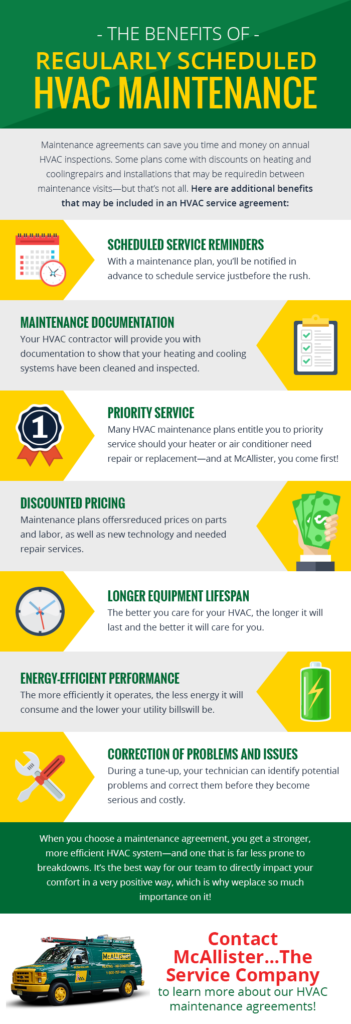
This image is property of www.mcservice.com.
Check and Lubricate Fan Motors
Fan motors in your HVAC system help circulate the air. Over time, these motors can become less efficient or even fail due to lack of lubrication or excessive wear and tear. Regularly checking and lubricating the fan motors ensures smooth operation, reduces energy consumption, and extends the lifespan of these essential components.
Inspect and Clean Heat Exchanger
The heat exchanger is responsible for transferring heat in your HVAC system. If it becomes dirty or damaged, it can lead to potential hazards, such as carbon monoxide leaks or poor heating performance. Regular inspection and cleaning of the heat exchanger help ensure its proper functioning, preventing dangerous situations and maintaining efficient heating.
Clear Drainage System
HVAC systems that rely on condensation for dehumidification have drainage systems to remove excess water. Over time, these drainage systems can become clogged with debris or algae growth, leading to water leaks or system malfunctions. Regularly clearing the drainage system prevents water damage and ensures that the system can effectively remove excess moisture from your space.
Seal and Insulate Ductwork
Leaky or poorly insulated ductwork can significantly affect the efficiency of your HVAC system. Air leaks in the ducts can result in energy waste and temperature inconsistencies throughout your space. Inspecting and sealing any leaks and properly insulating the ductwork helps ensure that conditioned air reaches its intended destination, maximizing the efficiency and effectiveness of your HVAC system.
Choosing a Professional HVAC Maintenance Service
Experience and Expertise
When selecting an HVAC maintenance service, it’s important to choose a company with extensive experience and expertise in the field. Look for a service provider that has been in the industry for a significant amount of time and has a proven track record of delivering high-quality services.
Certifications and Licenses
To ensure that you are hiring a reputable and trustworthy HVAC maintenance service, check if they hold the necessary certifications and licenses. Proper certification demonstrates that the technicians are trained and knowledgeable in handling HVAC systems, adhering to industry standards and safety protocols.
Positive Customer Reviews
Take the time to read customer reviews and testimonials about the HVAC maintenance service you are considering. Positive feedback and recommendations from satisfied customers can provide valuable insights into the service provider’s professionalism, reliability, and customer satisfaction.
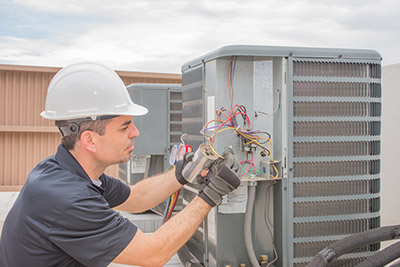
This image is property of www.iaqa.org.
Comprehensive Maintenance Plans
Look for an HVAC maintenance service that offers comprehensive maintenance plans tailored to your specific needs. A reputable service provider will offer a range of services, including routine inspections, cleaning, and maintenance tasks to ensure the safe and efficient operation of your HVAC system.
Emergency Repair Services
Emergencies can happen at any time, and having access to emergency repair services can provide peace of mind. Choose an HVAC maintenance service that offers 24/7 emergency repair services, ensuring a swift response and resolution to any unforeseen issues with your system.
Warranty and Guarantee
A reliable HVAC maintenance service should stand behind their workmanship and the quality of their services. Look for a service provider that offers warranties and guarantees on their maintenance work. This demonstrates their commitment to customer satisfaction and provides reassurance that they will address any issues that may arise after the service has been completed.
DIY HVAC Maintenance Tips
Regularly Change Air Filters
As mentioned earlier, clean air filters are essential for proper airflow and efficient operation of your HVAC system. Regularly check and change your air filters, following the manufacturer’s guidelines. Typically, air filters should be changed every one to three months, depending on usage and the environment.
Keep Outdoor Unit Clean and Free of Debris
The outdoor unit of your HVAC system can accumulate leaves, dirt, and other debris, hindering its performance. Ensure that the area surrounding the unit is clear and free from any obstructions. Regularly clean the unit by removing any debris, such as leaves or twigs, to ensure proper airflow.
Clean Vents and Registers
Dust and dirt can accumulate on vents and registers, reducing airflow and impacting the efficiency of your HVAC system. Regularly clean these components with a soft brush or vacuum to maintain optimal airflow and prevent the buildup of allergens or airborne contaminants.
Monitor Thermostat Settings
Take the time to monitor and adjust your thermostat settings according to your comfort needs. Make sure the temperature settings are appropriate for the season and your preferences. Utilize programmable thermostats to optimize energy savings by adjusting the temperature when you are away or asleep.
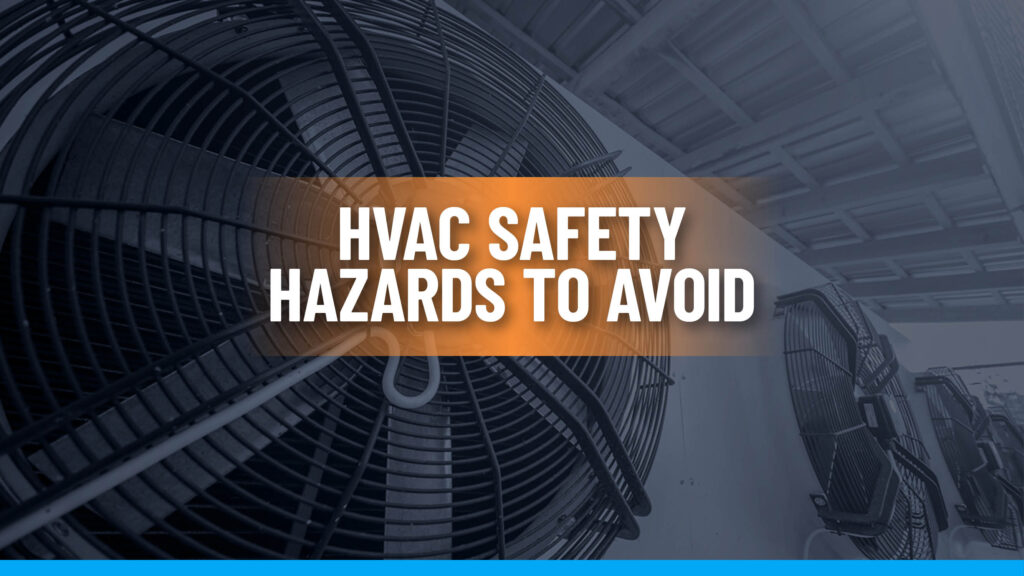
This image is property of images.ctfassets.net.
Inspect and Clear Air Ducts
While professional inspection and cleaning of air ducts are recommended, you can also visually inspect them for any obvious signs of damage or leaks. Additionally, ensure that the air ducts in your living or working space are clear of any furniture or other objects that may obstruct airflow.
Test Carbon Monoxide and Smoke Detectors
To ensure the safety of your home or workplace, regularly test and maintain carbon monoxide and smoke detectors. Replace batteries as needed and check the functionality of these devices to detect any potential dangers promptly.
Signs of HVAC System Trouble
Inadequate Heating or Cooling
One of the most obvious signs of HVAC system trouble is inadequate heating or cooling. If you notice that your HVAC system is struggling to reach and maintain the desired temperature in your space, it could indicate a malfunctioning component or a larger system issue that requires professional attention.
Unusual Noises
Unusual sounds coming from your HVAC system, such as grinding, rattling, or squealing, can be indicators of underlying issues. These noises may point to mechanical problems, loose parts, or worn-out components. It is important to address any unusual noises promptly to prevent further damage and increase the lifespan of your system.
Frequent Cycling On and Off
If your HVAC system is frequently cycling on and off, it could be a sign of an underlying problem. This cycling behavior can result from issues like a faulty thermostat, refrigerant leaks, or problems with the compressor. It is essential to have these issues diagnosed and repaired to prevent further damage to your system.
Uneven Airflow
Uneven airflow throughout your space can indicate issues with your HVAC system. If certain areas are significantly warmer or cooler than others, it may be a sign of clogged ducts, airflow restrictions, or imbalances in your system. Professional maintenance and inspection can help identify and rectify these issues.
Increased Energy Bills
If you notice a sudden increase in your energy bills without a change in usage or rates, it could be a sign of HVAC system trouble. A malfunctioning or inefficient HVAC system often consumes more energy to heat or cool your space, resulting in higher utility bills. Addressing any potential issues can help reduce energy waste and bring your bills back to normal.
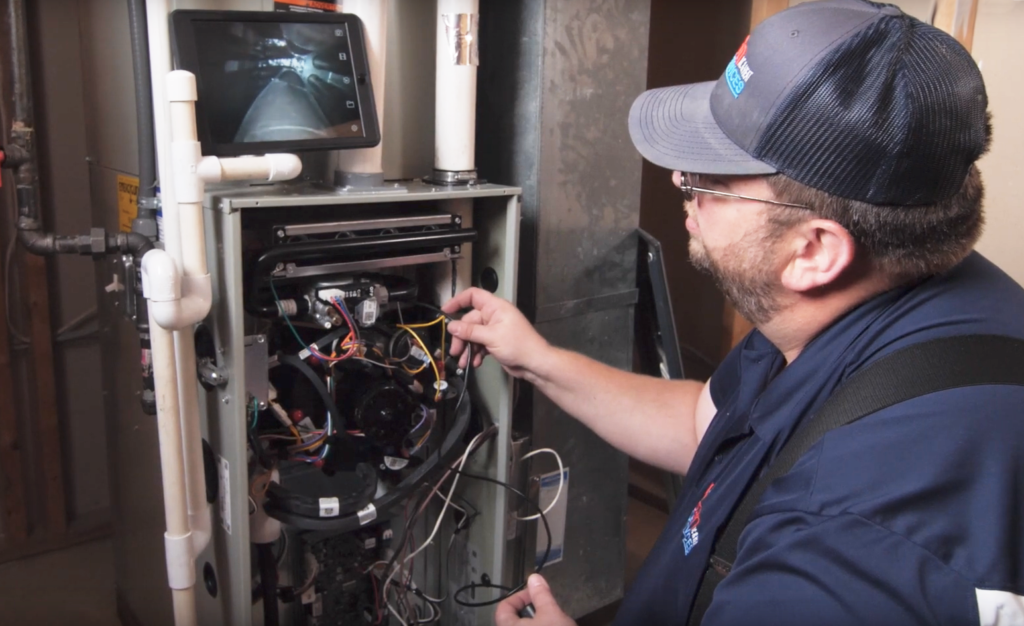
This image is property of www.cincinnati.com.
Strange Odors
Unpleasant odors emanating from your HVAC system can be indicative of various problems. Musty or moldy smells suggest mold growth in the system, while burning or electrical odors can indicate electrical issues or potential fire hazards. Foul or unusual odors should always be investigated promptly by a professional HVAC technician.
Importance of Carbon Monoxide Detectors
Early Detection of Dangerous Levels
Carbon monoxide is a silent killer, as it is colorless, odorless, and tasteless. Installing carbon monoxide detectors in your home or workplace is crucial to detect the presence of dangerous levels of this poisonous gas. Carbon monoxide detectors can provide early warning signs, allowing you to evacuate the premises and seek safety before it is too late.
Preventing Carbon Monoxide Poisoning
Carbon monoxide poisoning can lead to severe symptoms, including headaches, nausea, dizziness, confusion, or even loss of consciousness. In extreme cases, it can be fatal. By installing carbon monoxide detectors and regularly maintaining them, you can prevent carbon monoxide poisoning and protect the health and well-being of yourself and your loved ones.
Proper Placement and Installation
To ensure the effectiveness of carbon monoxide detectors, it is important to install them properly. Follow the manufacturer’s instructions regarding recommended placement, typically near bedrooms or in areas where carbon monoxide-producing appliances are located. Regularly test the detectors to ensure they are functioning correctly.
Regular Testing and Maintenance
Carbon monoxide detectors should be tested regularly to ensure their proper functioning. Test the detectors according to the manufacturer’s guidelines, typically at least once a month. Replace the batteries as needed and replace the detectors according to the manufacturer’s recommended lifespan. Regular maintenance and testing are crucial to ensure that the detectors are ready to detect any potential carbon monoxide leaks.
Hazards of Electrical Issues in HVAC Systems
Electrical Fires
Electrical issues in HVAC systems can lead to electrical fires. Faulty wiring, worn-out components, or short circuits can cause overheating, sparking, or arcing, resulting in a fire hazard. Regular maintenance and inspections help identify and address any underlying electrical issues, minimizing the risk of electrical fires.
Overloading Circuits
HVAC systems draw a significant amount of electricity to function. If the electrical circuits in your home or workplace are not designed to handle this load, it can lead to overloaded circuits, tripped breakers, or even electrical fires. A professional HVAC technician can assess the electrical requirements of your system and ensure that the circuits are properly sized and equipped to handle the demand.
Damaged Wiring
Worn-out or damaged wiring in your HVAC system poses serious safety risks. Frayed wires, loose connections, or exposed wires can lead to short circuits, electrical shock, or even fires. Regular HVAC maintenance includes inspecting the wiring and addressing any signs of wear and tear or damage, ensuring safe and reliable operation.
Malfunctioning Components
HVAC systems consist of various electrical components, such as motors, capacitors, or control boards. Over time, these components can become faulty or malfunction due to wear and tear. Malfunctioning components can pose safety hazards, including overheating, electrical fires, or system breakdowns. Regular maintenance by a trained professional helps detect and address any failing components, ensuring the safe and efficient operation of your HVAC system.
Preventing Gas Leaks
Proper Ventilation
Proper ventilation is essential to prevent the buildup of gases and avoid the risk of gas leaks. Adequate ventilation ensures that any gas leaks or fumes are safely exhausted outside. Regularly inspect vents, chimneys, or flues to ensure they are clear and functioning properly, and have them professionally maintained as needed.
Regular System Inspections
Regular inspections of your HVAC system help identify potential gas leaks early on. A professional HVAC technician can check for leaks in the piping, connections, or valves and address any issues promptly before they escalate into hazardous situations. Detecting and repairing gas leaks promptly can protect the safety of your home or workplace.
Monitoring Gas Pressure
Monitoring gas pressure is crucial to ensure the safe operation of your HVAC system. Gas pressure that is too high or too low can indicate potential leaks or problems with the system. Professional HVAC maintenance includes checking and adjusting gas pressure to ensure it is within the manufacturer’s specified range, preventing gas leaks and ensuring optimal performance.
Using Quality Materials and Fittings
To prevent gas leaks, it is essential to use high-quality materials and fittings when installing or repairing your HVAC system. Using inferior or substandard materials can increase the risk of leaks or failures in the system. Hiring a reputable HVAC service provider that uses quality materials and fittings helps ensure the reliability and safety of your HVAC system.
The Impact of Mold in HVAC Systems
Respiratory Issues
Mold growth in HVAC systems can lead to various respiratory issues. Mold spores can become airborne and circulate throughout your living or working space, triggering allergies or respiratory problems. Individuals with pre-existing respiratory conditions, such as asthma or allergies, are particularly susceptible to the adverse effects of mold.
Allergic Reactions
Mold allergies can cause a range of symptoms, including sneezing, coughing, itchy or watery eyes, and skin rashes. These allergic reactions can significantly reduce comfort levels and overall well-being. Preventing mold growth in your HVAC system through regular maintenance and inspections helps minimize the risk of allergic reactions.
Property Damage
Mold growth not only affects your health but can also cause damage to your property. Mold can deteriorate building materials, such as drywall or insulation, and cause structural issues over time. By taking proactive measures to prevent mold growth in your HVAC system, you can protect the integrity and longevity of your property.
Foul Odors
The presence of mold in your HVAC system can lead to unpleasant, musty odors. These odors can permeate throughout your living or working space, reducing indoor air quality and creating an unpleasant environment. Regular maintenance and cleaning of your HVAC system help eliminate mold growth and prevent foul odors from affecting your space.
In conclusion, regular HVAC maintenance is crucial to maximize the benefits of your system and avoid potential dangers. Enhancing efficiency, extending the lifespan, improving air quality, and saving energy are just a few of the advantages of regular HVAC maintenance. Additionally, addressing common dangers associated with malfunctioning HVAC systems, such as carbon monoxide poisoning, electrical fire hazards, gas leaks, mold growth, and airborne contaminants, is essential to ensure the safety and well-being of yourself and those around you. By following proper maintenance practices, choosing a professional HVAC maintenance service, implementing DIY maintenance tips, recognizing signs of system trouble, understanding the importance of carbon monoxide detectors, being aware of electrical hazards and gas leaks, and recognizing the impact of mold in HVAC systems, you can enjoy a safe, efficient, and reliable HVAC system that provides optimal comfort and peace of mind.


